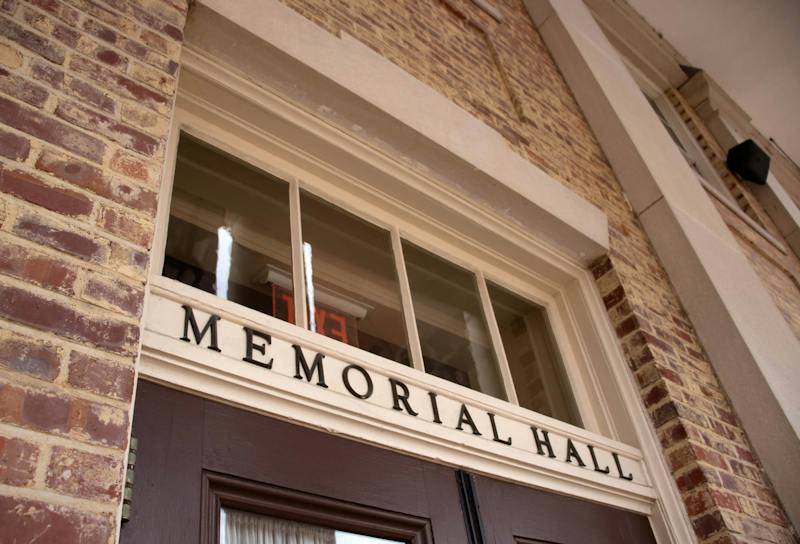
“There’s some things that are super local in those experiences, and then there’s some things that are very universal, and so both local and universal themes come out in this performance as well,” Graham said.
She said the performance encourages audiences to think critically about data, about how categorizing people can limit the stories we tell and how art can open those stories up.
Cast members introduced each other with a personally significant object, moved on stage to visualize demographic statistics and responded to questions by flipping colored signs, crossing the stage or switching on flashlights.
The overall structure stays consistent across locations, but questions are adjusted based on in-depth interviews with the cast to ensure that the performance is truly local, the show’s co-director and Rimini Protokoll co-founder Daniel Wetzel said in the Q&A.
In a ‘dark ballot’ section, participants shined flashlights upward, visualizing their responses to sensitive questions like, “Who drinks and drives?” and “Who among you dislikes someone else among the 99?”
Wetzel noted that responses to the dark ballot nearly doubled in the most recent performance compared to the first. While the flashlight vote is secret to the audience, people on stage can see each other, which discourages honest voting, he explained.
“I think today people thought, ‘It doesn’t matter, I can share that with people,’” he said.
He said during the Q&A that casting a group that truly represents the Triangle was a challenge for the team.
It was hard to find 71 participants willing to commute from Wake County, which has the largest demographic share in the Triangle, CPA executive and artistic director Alison Friedman said in the Q&A.
She said the casting process wasn’t finalized until the dress rehearsal on Friday.
Despite their best efforts, the group was far from perfectly representative. Academics and people in the arts were overrepresented, partially because shift-workers and people in the service industry simply didn’t have the time or flexibility to participate in the project, Friedman said.
Similarly, the 100 performers were more politically liberal than the Triangle average. College campuses, Chapel Hill and the arts all have political reputations, making would-be conservative participants skeptical, Friedman said in the Q&A.
To get the day’s news and headlines in your inbox each morning, sign up for our email newsletters.
Paradoxically, the process itself changes performers’ beliefs, Huang said. As they get to know people with views outside their bubble, they grow more open-minded but less representative of a random slice of the population.
The audience also influences the performance. For example, Huang said she saw performers change their mind when they had parents watching.
Audience member Aaron Levy noticed inconsistencies across performers’ answers.
“But it makes sense — that’s the way all of us are,” Levy said. “We don’t always make sense. So I think that was good.”
Graham said “100% The Triangle” is unlike anything she’s seen before, and unlike anything audiences will ever see.
“I’ve seen social practice performances, performances that involved everyday people, but I have never seen a performance that featured so many people that represented a place—they call it a body with 100 heads—this group of people has to work together and act together in order to make this performance a success and that’s a real challenge,” she said.
@dthlifestyle | [email protected]
